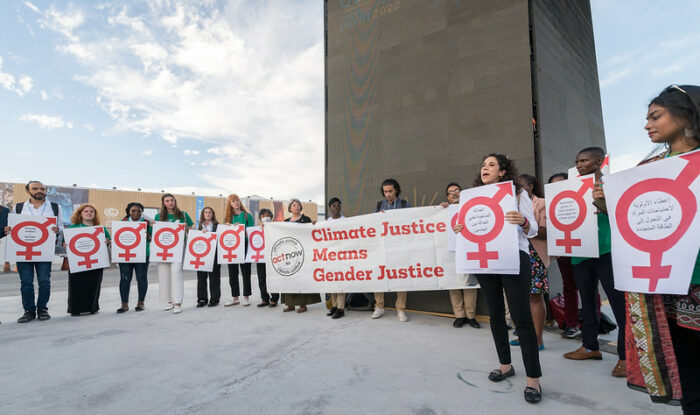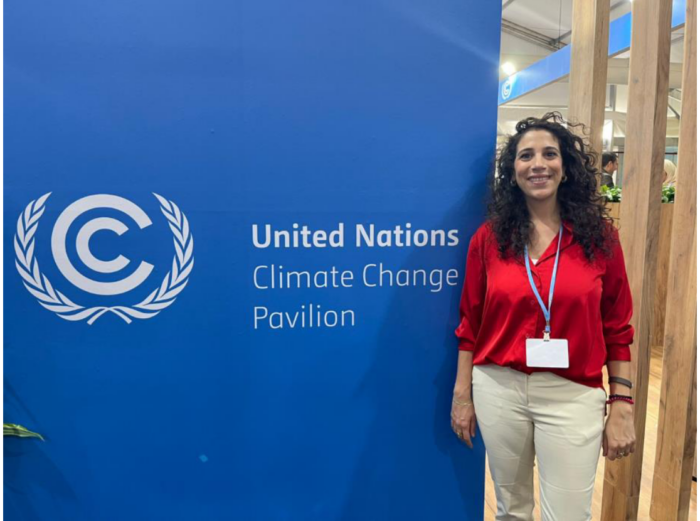By Manal Shehade

This last week at COP27 has been eye-opening, frustrating and inspiring. Most importantly, as we approach the final day and hours it ends with hope.
As a Palestinian woman, climate justice in my region and in my home goes hand in hand with gender justice and human rights. I see the climate-related impacts on my community, for example, in increased droughts and lack of water. I see how this disproportionally impacts women and girls in our community. The struggle for women’s rights, water rights, land rights, and fundamental human rights are interconnected struggles for justice.
It’s been eye-opening to see the different sectors, movements, countries and governments navigate a shared but unequal space. It has been exhilarating to engage with youth, Indigenous communities, gender movements, and country negotiating teams. In many spaces we’ve amplified a collective voice that there is no climate justice without gender justice and human rights.
Yet, in the midst of all of this, there is that feeling of frustration. Outside the negotiating rooms there is a sense of urgency. Civil society is sharing the realities of the climate emergency that is happening now and sharing some of the creative ways that we can mitigate, adapt and fund gender-transformative solutions. Yet this is not reflected in the proposed text where gender continues to be de-prioritised.
Next week, the world will mark 16 Days of Activism against Gender-Based Violence, and we will continue our struggle for gender justice. As with Gender Day at COP27, it is important to shine a spotlight on gender, recognising both how far we have come, and how much further we still need to go. But we cannot confine our work for gender to thematic days. We need to see gender mainstreamed into all our work. I am a firm believer in this.
We have the right to be a part of all decision-making processes. We are not victims; we are leading climate solutions and just transitions within and beyond movements and industries. We build on the gender movements that have gone before us, and the battles that have already been won for women’s rights, but the fight for equal rights and equal representation is far from over.
Despite my frustration, I remain hopeful. At COP27 I saw women at the negotiating tables, and leading media actions and side events. I saw younger generations of women from all walks of life come together to remind the world that decisions cannot be taken without them. No true change can occur without women and girls being part of the solution.
Manal Shehade chairs ACT’s Middle East Gender Justice working group and is an active member of the Middle East Climate Justice working group. As programme officer for ACT members DanChurchAid and Norwegian Church Aid in Palestine, her work on humanitarian aid and gender is underpinned by a passion for climate justice. She is Palestinian and lives in Jerusalem and has previously worked internationally on peace and conflict management.
